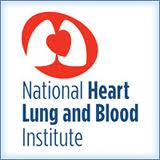
The National Heart, Lung, and Blood Institute (NHLBI) published a Funding Opportunity Announcement (FOA) in the Spring 2012 NIH Guide for Grants and Contracts to establish Centers for Accelerated Innovations (CAI). The CAI will address the problems that hinder the critical early steps necessary to translate novel scientific advances and discoveries into commercially viable diagnostics, devices, therapeutics, and tools that improve patient care and advance public health.
The Need for Accelerated Innovation
Despite the remarkable success of NHLBI in enabling the development of interventions that have greatly reduced the health burdens due to cardiovascular, lung, blood and sleep disorders, much remains to be done. Cardiovascular and lung diseases still account for 3 of the 4 leading causes of death; 4 of the 10 leading causes of infant death; $392 billion in health care dollars, and 22% of the total economic costs of illness, injuries, and death.
Unfortunately, the pace of translating discoveries from NHLBI-supported research into medical products that can further reduce the public health burden of heart, lung, and blood (HLB) diseases appears to have slowed. Major pharmaceutical firms have announced their intention to abandon drug development efforts for cardiovascular diseases and venture capital and angel investors have shown a decreased interest in the healthcare and biotechnology sectors.
This NHLBI Centers for Accelerated Innovation program will use a new approach to identifying promising emerging technologies (drugs, devices, diagnostics and tools) and facilitating their translation to commercial products that can improve patient care and advance health.
How does the CAI program work?
This program is an integrated, systematic, and comprehensive “one-stop shopping” approach to moving basic science discoveries through early stage technology development to ultimate commercialization for the prevention and management of cardiovascular, pulmonary, hematologic and sleep disorders. The Centers will solicit and select compelling innovations and offer a centralized resource for access to the critical funding and expertise that is needed to foster their development.
The Centers’ focus will be on innovations that have progressed to a point where a potential commercial product can be envisioned, but need additional development efforts to demonstrate feasibility, validation, or proof-of-concept. In addition to assessing the public health needs and/or scientific opportunities, the Centers will provide early access to expertise in entrepreneurship and business development, market analysis, intellectual property and other legal and regulatory processes, and access to capital that will be essential to commercial success. The Centers will also provide inventors who are new to the technology development process relevant training opportunities and personal mentoring. They will be able to facilitate access to and leverage existing NHLBI and other NIH programs such as the Science Moving Towards Research Translation and Therapy (SMARTT), Clinical and Translational Science Awards (CTSAs), and Therapeutics for Rare and Neglected Diseases (TRND).
In summary, the CAI program will help innovators overcome initial problems by providing the support necessary to succeed in conducting the scientific feasibility and business-relevant research required to help bridge the gap between academia and the market. It is the hope that programs like these, which promote public-private partnerships and focus on creating an integrated network of funding, knowledge, and expertise, can prevent innovators from succumbing to funding gaps and instead aid them in innovating. Competitive applications for a Center will be expected to demonstrate proven experience in establishing partnerships and alliances between potentially interested parties.
Finally, and perhaps most compelling, technologies will be selected for nurturing in a Center on the basis of their promise and relevance to diseases in the Institute’s mission and then be subjected to rigorous project management with well-defined milestones and stringent review processes to ensure adherence to those milestones as the basis for timely “go/no go” decisions regarding a technology, i.e., whether to continue or abandon further development efforts. The program is designed to be rigorous and targeted.
For a complete description of the CAI program, please visit http://grants.nih.gov/grants/guide/rfa-files/RFA-HL-13-008.html.
Direct Inquiries to:
Jodi B. Black, PhD; MMS
Phone: 301-496-5861
Email: jodi.black@nih.gov
Kathleen Rousche, PhD
Phone: 301-594-5507
Email: rouschek@mail.nih.gov
